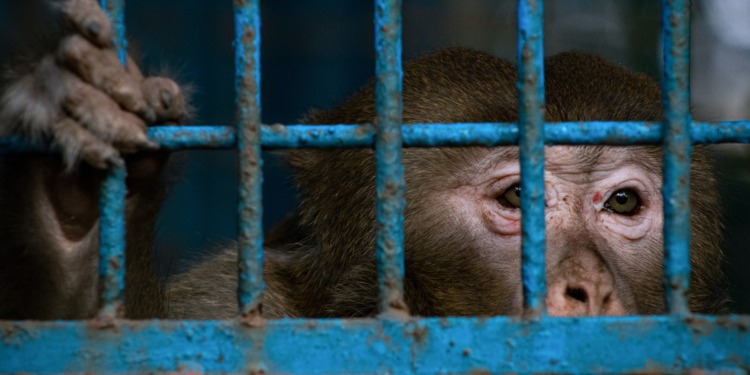Killing another human being is wrong. Helping out a homeless person is right. These are ethical values that most people would agree with. However, humans’ ethical standards vary and ethical decisions are complex. What is wrong under certain circumstances might be right, or at least acceptable, in other cases. Let’s take a look at one of these cases: Zoos, starting with their history, how they arose.
The benefit of conservation: a history of animal “protection”
The idea for zoos has been around for a long time. The first public animal exhibition dates back to the 1400s BC: The Egyptian queen Hatshepsut had several animals that had been captured in far away lands; allegedly, she displayed them to show off her wealth and right to rule.
From the 1700s, zoos began to combine entertainment with education thanks to interactive exhibits, contact areas and shows.
Zoos justify animals’ captivity with the “benefit of conservation”: They are actually helping animals who would otherwise be threatened by environmental changes and globalization. “Captivity for conservation” became a crucial slogan for modern zoos.
In 1993, the first “World Zoo Conservation Strategy” was launched with the goal of caring for the planet’s biological systems; captivity was, according to this view, the best way to do so.
However, when we look at the reality of zoos’ inhabitants, things are a little different: Many of the animals who are currently interned do not belong to endangered species and do not require “captivity for conservation”.
Moreover, breeding programs have been running for years and have decreased the number of species that zoos can host. In fact, if zoos wanted to host all the animals that were actually endangered, they would need an incredibly larger space than what is currently available. As Leslie Kaufman put it, breeding endangered animals “feels less like Noah building an ark and more like Schindler making a list.”
A different approach — the so-called integrative approach — might be the solution, at least according to some researchers: the focus should be on returning captive-bred endangered species to the wild.
However, returning an animal to its natural habitat is not as easy as one might think: Being held captive changes the animal’s perception of the outside world and lowers their natural instinct.
In fact, the biggest problem with zoos is linked to visitors and the whole idea of animals as entertainment.

Zoos: morally justified or economically profitable?
Are zoo managers interested in animal welfare or do they only care about leaving a positive impact on people for their own economic goals?
From an ethical perspective, there are two main sides of the argument: Animal rights philosophers, who argue that animals must be given the same moral consideration as humans, and animal welfare philosophers, who believe that it is ethical for animals to be used by humans as long as welfare is assured.
To make matters even more confusing, there are several definitions of animal welfare: some define it as “a state of complete mental and physical health, where the animal is in harmony with its environment,” some as “living or adaptation of animals without suffering to the environments provided by men.”
These two definitions, suggested by Hughes and Carpenter respectively, are difficult to apply to real-life situations. If humans need to provide an environment that best resembles animals’ natural habitat, hence avoiding suffering, the problem of size comes back into play.
Moreover, how can we be sure that the animals are not suffering? Researchers have been trying to provide a definitive answer, which turns out to be something along the lines of “an animal is not suffering if they show all their natural behaviors.”
So now, let’s assume that all zookeepers in the world managed to achieve animal welfare, at least according to the previous definitions. Is it still ethically justified to keep animals in cages?
It is in a zoo’s best interest to show their animals in the finest shape possible. But the question we should ask ourselves is whether there is an actual concern for the animals’ well being or if it all comes down to money.
My answer might be biased, but considering the current condition of most zoos, I believe zoo managers’ main concern is far from noble. Otherwise, how would we explain all the problems that come with captivity that zookeepers seem to ignore or hide?
The problem with captivity
Visitors’ experience improves the more the animals show their natural behavior, because visitors tend to care about animals’ welfare. In order to “feel well,” animals need to be in an environment that best resembles their natural one.
But multiple factors come into play when we talk about animals’ physical environment. In fact, various components can influence captive animals’ behavior, including how much space they have and how far they are from visitors.
Captive animals experience the so-called “visitor effect.” Research shows that different species have different responses to visitors, making it impossible to state with absolute certainty what specific behavior or environmental condition distresses animals the most.
Related Articles: Earth’s ‘Sixth Mass Extinction’ Has Begun, Study Warns | It’s Time to Rethink How We Live With Animals | Conservation Actions Work to Save Species | Animal Lives Over Human Entertainment: Driving Change for ‘Big Cats’ in the U.S.
What is clear is that, in most cases, visitors have either a negative or a neutral impact on zoos’ animals. It goes without saying that negative human behavior, such as shouting, hitting, or rough movements has a negative impact on animals.
However, humans do not need to show aggressive behavior to be perceived as a threat. In fact, research suggests that all species have some kind of built-in fear of humans and are likely to perceive them as a threat.
To make things worse, zoo animals are generally wild animals, meaning that they lack the centuries of domestication that other animals have gone through.
Captive animals experience several negative effects: Repetitive and abnormal behavior, changes to immune function and brain morphology, different circadian rhythms and reproductive behavior.
Among specific negative effects of visitors on animals, we can find hiding behavior in quokkas, less grooming and play in chimpanzees, and less swimming in penguins. These behaviors are unnatural for animals; consequently, zoo leaders do their best to limit such reactions.
However, I cannot help but ask myself this: Is it because they want to make sure animals are well or because these behaviors negatively impact the visitors’ experience?
The future of zoos
It seems like most of the arguments on animal welfare focus on how to improve captive animals’ well being. But what if the problem is captivity itself?
If we did not keep animals in cages to entertain people who would be better off doing an activity that does not include the exploitation of other living beings, we would not have the problem of how to make captive animals suffer less. It is true that some zoo directors around the world care about the animals’ wellness, but even they admit that the majority of zoos open nowadays should be shut down.
Bernard Harrison, the director of the Singapore Zoo, stated that, if he could, he would shut down 90% of the zoos currently open. Jenny Gray, chief executive officer of Zoos Victoria, is even more pessimistic. In her book, “Zoo Ethics: The Challenges of Compassionate Conservation,“ she wrote that 3% of zoos, at best, meet ethical standards.
Protecting endangered species and ensuring conservation is one of the key goals of zoos, or so they proclaim.
However, the reality, as shown above, is different. If zoo directors really care about these things, they could help fund programs in the wild, avoiding the suffering that animals feel due to captivity.
Moreover, they should take into consideration that some animals do better in captivity than others; unfortunately, the charismatic species who do worse in cages are also the ones zookeepers exhibit the most.
At the end of the day, it seems to me that this argument is far from an ethical one. I can only hope that the growing concern for animals’ well being that people self-proclaim to have will lead to the decrease in visits to the 97% of zoos that treat animals in an unethical way.
Editor’s Note: The opinions expressed here by the authors are their own, not those of Impakter.com — In the Featured Photo: Monkey in a cage, December 2022. Featured Photo Credit: SHAKIL CHOWDHURY.










